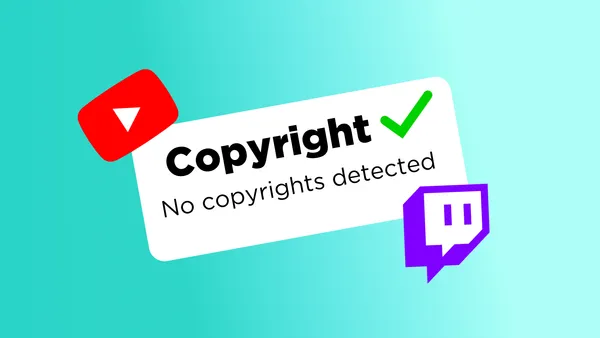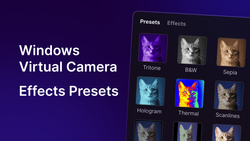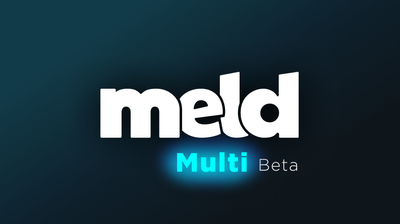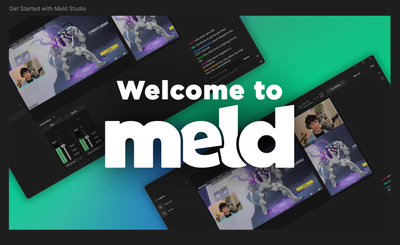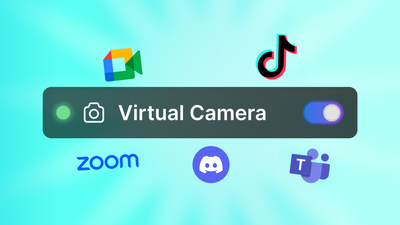On this page
The Digital Millennium Copyright Act (DMCA) has led to strict regulations on streaming platforms like Twitch and YouTube, resulting in many streamers receiving strikes or even bans for using unlicensed music. To steer clear of DMCA strikes while live streaming, it’s important to know the basics of copyright law and how the DMCA works.
What is DMCA?
The Digital Millennium Copyright Act is a U.S. copyright law passed in 1998 that aims to protect copyrighted content on digital platforms. It grants copyright holders the right to control the distribution and use of their work online. Under the DMCA, copyright holders can issue takedown requests when their content is used without permission, and platforms are legally obligated to respond to these requests. This law was created to help address the rapid growth of digital media and to prevent unauthorized sharing of copyrighted materials.
Copyright Basics
Copyright law grants the creator of a piece of music exclusive rights to its use, reproduction, and distribution. This means that using copyrighted music during a live stream without the permission of the rights holder is considered copyright infringement. Music copyrights generally involve two main components: the composition (melody, lyrics, etc.) and the recording (the specific performance of the composition). Streamers need to ensure they have permission for both aspects if they want to use music in their streams. It’s important to understand that even playing a few seconds of copyrighted music without a license can lead to a DMCA claim.
Platform Compliance
Streaming platforms like Twitch, YouTube, and Facebook Live must comply with DMCA requests to avoid liability. This compliance often involves issuing takedown notices, muting portions of content, and sometimes issuing DMCA strikes against the streamer's account. Platforms use automated detection systems to identify copyrighted music in streams and recordings (VODs), which means even small uses of unlicensed music can be flagged. For streamers, this means that even if music is only in the background or used incidentally, it can still lead to consequences if it is copyrighted.
Fair Use Misconception
Many streamers mistakenly believe that they can use copyrighted music under the concept of "fair use." However, fair use is a narrow legal doctrine that allows limited use of copyrighted material without permission, usually for purposes such as commentary, criticism, news reporting, or educational content. Streaming copyrighted music purely for entertainment typically does not qualify as fair use.
Ongoing Challenges of DMCA
AI Detection
Streaming platforms like YouTube, Twitch, and Facebook Live increasingly rely on artificial intelligence to detect copyrighted music in real time. These AI systems, such as YouTube's Content ID or Twitch's automated audio recognition tools, use sophisticated algorithms to identify music by comparing it against large databases of copyrighted tracks. This technology helps platforms enforce DMCA compliance more efficiently, but it also means that even unintentional use of copyrighted content can be flagged instantly. For streamers, this creates additional pressure to ensure that all music used in their streams is properly licensed or cleared. The accuracy of AI detection can sometimes be problematic, leading to false positives or mistaken claims, which can frustrate streamers and interrupt their content.
Recent Legal Cases
Staying informed about ongoing legal cases and changes in copyright law is essential for streamers who want to avoid trouble. Several recent legal cases have highlighted the importance of copyright compliance in the live streaming space. For example, in 2020, the National Music Publishers' Association (NMPA) reached out to Twitch regarding unauthorized music usage, putting pressure on the platform to take stricter measures against copyright infringement. This led to a significant wave of DMCA takedown notices aimed at older VODs and clips and a widespread deletion of past content by streamers to avoid potential penalties.
Music Industry Adaptation
Platforms like Twitch have struck licensing deals with some music companies to create "safe" music options for streamers. Streamers can identify opportunities by paying attention to announcements from streaming platforms regarding new partnerships, joining music licensing services, or seeking direct permission from smaller, independent artists. Some musicians are happy to allow streamers to use their music in exchange for promotion or credit, which can be mutually beneficial. Streamers should look for artists who explicitly mention that their music is "streamer-friendly" or who provide Creative Commons licensing options.
Consequences of DMCA Strikes
Receiving multiple DMCA strikes can result in serious consequences for streamers. Platforms like Twitch and YouTube have a "three-strike" policy, where repeated violations can lead to permanent account bans.
Even a single strike can lead to restrictions, such as temporary suspensions or the loss of monetization privileges. Additionally, strikes can result in the removal of archived content, which can be detrimental to a streamer’s growth and monetization. In some cases, copyright holders may even pursue legal action, which could result in significant fines or damages. Therefore, it is crucial for streamers to take DMCA compliance seriously to protect their channels and content.
Technical Solutions for Avoiding DMCA Strikes
Platforms like Twitch often scan VODs for copyrighted content, which means a song played during a live stream could lead to a DMCA strike long after the stream ends. Twitch experienced a significant wave of DMCA takedown notices in 2020 aimed at older VODs and clips containing copyrighted music from 2017 to 2019. Streamers can reduce the risk of DMCA strikes in recoreded content by using audio-splitting techniques to separate live audio from recorded content (VODs). Most DMCA strikes target recorded content because it stays online longer and is easier for copyright owners to find.
Meld Studio's Twitch VOD Track splitter allows you to play music live while keeping it out of recorded content.
Meld Studio is an OBS Alternative.
Alternatives for Music Use in Live Streams
Avoid DMCA Strikes
To avoid DMCA strikes while still providing an engaging experience for viewers, streamers have several alternatives for using music in their live broadcasts. Here are some of the best options available
Royalty-Free Music
Royalty-free music is a type of music that allows streamers to use it without paying ongoing fees. There are numerous services that provide royalty-free tracks for use in streams, such as YouTube Audio Library, Epidemic Sound, and Artlist. While there may be an upfront cost, once the license is purchased, streamers are generally free to use the music without worrying about DMCA strikes. It’s important for streamers to carefully read the terms of use, as some licenses may have limitations on how the music can be used.
Licensed Music Subscription Services
Some subscription-based services offer streamers licensed music that is specifically safe for use during live streams. Services like Monstercat Gold, Pretzel Rocks, and StreamBeats provide a wide variety of music tracks that have already been cleared for streaming. These platforms are designed to cater specifically to content creators and streamers, reducing the risk of DMCA issues. A monthly or yearly subscription grants access to a library of music that can be played during streams without concern for copyright strikes.
Public Domain and Creative Commons Music
Music that is in the public domain or available under a Creative Commons license can also be used safely during live streams. Public domain music is not protected by copyright, which means it can be used freely without permission. Creative Commons licenses, on the other hand, allow creators to use music as long as they adhere to the conditions set by the artist. These conditions might include attributing the artist or not using the work for commercial purposes, so streamers need to understand the specific terms of each license.
Collaborations with Independent Musicians
Streamers can also collaborate with independent artists or musicians who are willing to let them use their music. Many up-and-coming musicians are eager to get exposure for their work and may offer their music for free or for a small fee in exchange for credit. These collaborations can be mutually beneficial, as streamers get unique, DMCA-safe music, while musicians gain exposure to new audiences. Streamers can reach out to musicians on platforms like SoundCloud, Bandcamp, or even through social media.
Platform-Specific Music Tools
Some streaming platforms have started to offer their own solutions to help streamers avoid DMCA issues. For example, Twitch has a tool called "Soundtrack by Twitch," which provides a curated library of music that streamers can use during their live broadcasts. These platform-specific tools are particularly useful because they are designed with DMCA compliance in mind, reducing the chances of content being flagged or muted.
No Music or Original Content
As a final option, streamers can choose not to include music in their streams or to create their own original content. While this may not be suitable for all types of content, it is the safest approach for avoiding DMCA issues. Streamers who are musically inclined can compose their own tracks or create background loops, ensuring that they have full control over the rights to the music being played.
Conclusion
Live streaming is an exciting and powerful way for creators to connect with their audiences, but navigating the challenges of copyright law can be daunting. By understanding the DMCA, exploring music licensing options, and staying informed about industry trends and emerging technologies, streamers can avoid DMCA strikes and keep their content engaging. By making informed decisions and adopting safe practices, streamers can continue to entertain their audiences without the risk of legal issues.
Can I play copyrighted music during my live streams?
No, you cannot play copyrighted music during your live stream unless you have the proper permissions. However, you can mitigate the risk of DMCA strikes by using tools like audio-splitting to play music live while keeping it out of your VODs.
What are the consequences of receiving a DMCA takedown notice?
A DMCA takedown can lead to content removal, account suspensions, or even permanent bans if strikes add up. In serious cases, copyright holders may pursue legal action, making compliance essential for streamers.
How do I handle a DMCA claim against my channel?
Stop using the content immediately, review the notice and decide whether to comply by removing the content or file a counter-notification if the claim is invalid.
How do I split my audio to play copyright music live without saving it in the recording?
Meld Studio's built-in Twitch VOD Track Splitter allows you to mute any audio track from your Twitch video recordings while still playing the sound to your live audience.

